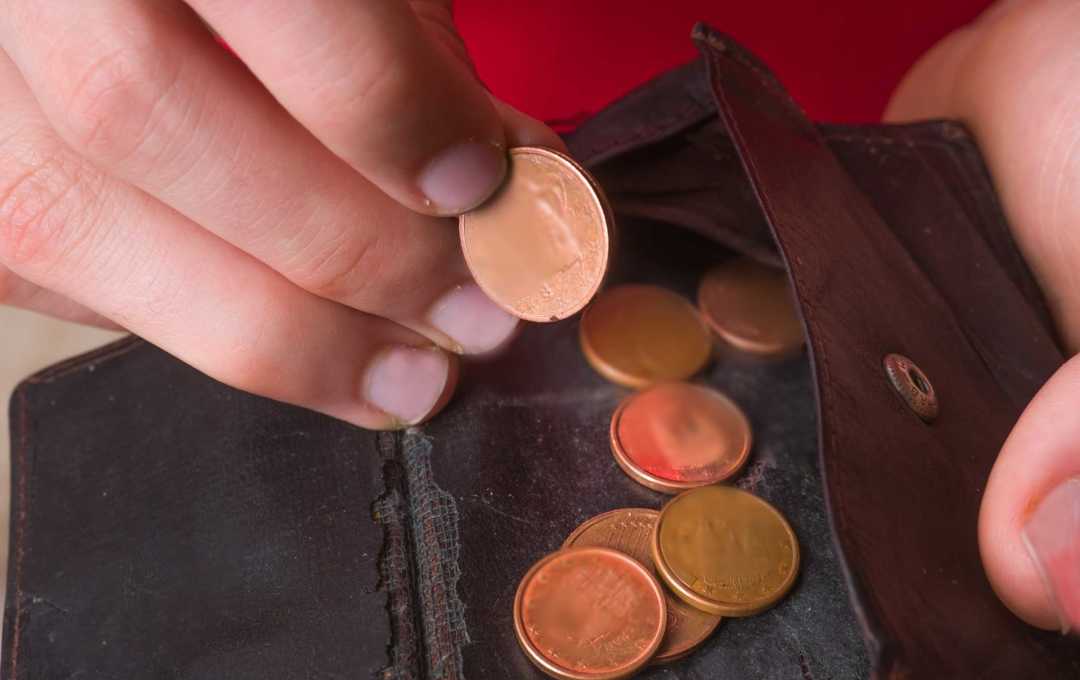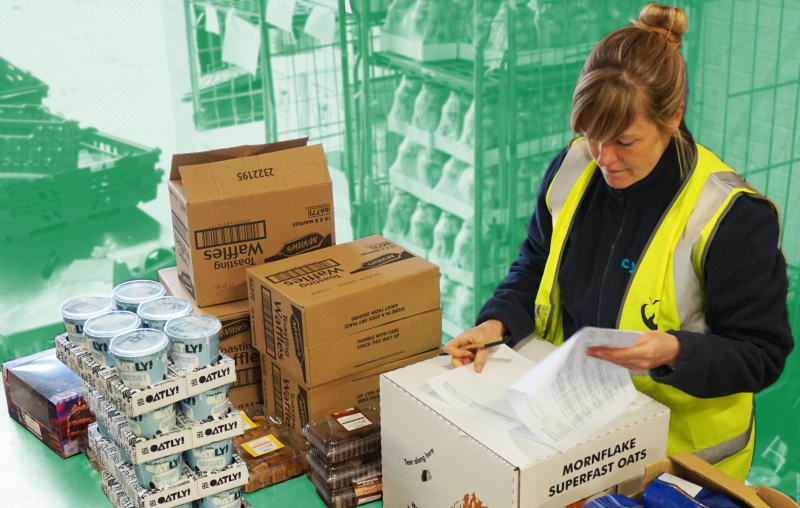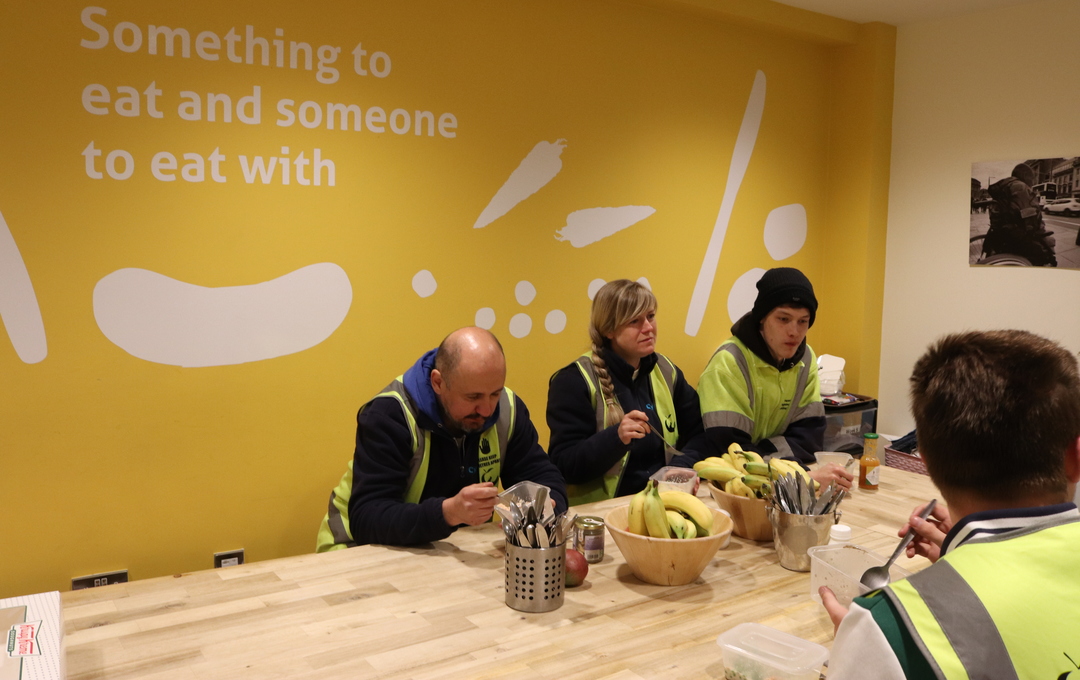You can’t budget your way out of poverty

As the cost of living crisis pushes more of us into food insecurity, we're bombarded with messaging to 'just spend less'. Food Education manager Sue O’Neill Berest explains why budgeting and frugal living isn't enough to escape poverty - and how we can still offer hope.
For almost a decade, I’ve been working with the Cook School, supporting people to develop the skills to cook healthy food on a budget. Since 2014, when I started working with Cyrenians, I’ve been able to help people develop strategies to save money.
But the bitter truth is that in 2022, there’s a limit to how far these strategies can take us. As we face a cost of living crisis which already has a quarter of us struggling to pay for food, no amount of careful budgeting, bulk cooking or belt-tightening is enough to change the fact that people’s incomes no longer cover the rising cost of their basic human needs.
According to the NHS, malnutrition in the UK has more than doubled since 2010. And for people like me who grew up with the image of malnutrition as starving children suffering famine, it’s easy to overlook the way malnutrition looks in Scotland today.
Even if you have the energy and the skills, nutrition is getting more expensive. Unlike in 2014, when learning the skills to cook nutritious food in bulk could save you money, today it’s almost always cheaper to buy something low-nutrition but affordable than it is to cook from scratch. Regardless of whether you’d rather cook for yourself, ready meals and snack foods are often the only thing you can afford.
For people who haven’t had to deal with poverty and food insecurity, it’s easy to fall into the old excuses for why people don’t just “pull themselves up by the bootstraps” - whether it’s suggesting that people should just skip the internet and phone bills to pay for fresh veggies (as if it wasn’t increasingly impossible to exist without an internet connection in a world where you need the internet to access everything from job applications to benefits and medical care) or creating lists of “affordable” alternatives to fast food and ready meals that will take twice as long to prepare for half as much food. The implication, so often, is that people could escape poverty and escape malnutrition if they just tried harder. Recently, we’ve even seen UK ministers say publicly that the solution to the cost of living crisis is, effectively, ‘just have more money’.

1 in 5 people in Edinburgh are skipping meals to pay the bills
The truth is, though, people are already pushing themselves to the limit, and it still isn’t enough. Almost 2/3 of those in poverty in Scotland are from working households, with many working multiple jobs to make ends meet or struggling to keep afloat in an exploitative gig economy. And more of us are facing this struggle – along with the cost of living crisis, we’re seeing more and more people who haven’t previously experienced poverty struggling in the wake of the pandemic.
Poverty is exhausting.
Malnutrition isn’t just an issue of access to food or cooking skills – it's about a vicious cycle of hunger, poor mental health and lack of energy. Poverty and hunger exhaust us – we use up so much energy just trying to keep our heads above water. And when you’re tired and miserable, it’s that much harder to take care of yourself. When you’re stressed about money, exhausted from work and not sure how much longer you can afford power, how can you convince yourself to spend more money and spend hours in the kitchen when you could just eat a packet of crisps, or nothing at all?
So if we’ve reached the limit of belt-tightening and budgeting, and things are still looking dire, how do we make things better?
At Cyrenians, we can’t put more money in people’s pockets. We can’t stop people charging more for housing and power. But we can still make a difference.
 My colleagues in our Depot and the Community Pantries are meeting the immediate need, getting food on the table in an accessible and affordable way. And at the Cook School, we continue to help people develop strategies to make the most of what they can afford. We make sure that everyone who comes to the cook school leaves having eaten well, and knowing that they’re not alone.
My colleagues in our Depot and the Community Pantries are meeting the immediate need, getting food on the table in an accessible and affordable way. And at the Cook School, we continue to help people develop strategies to make the most of what they can afford. We make sure that everyone who comes to the cook school leaves having eaten well, and knowing that they’re not alone.
Poverty is isolating, and isolation makes it so much harder to deal with poverty. We offer food, and we offer skills, but when we’re standing over a stove, moving crates of cabbages or sharing a hot meal, we’re also offering community. It’s a space where people can build trust and joy – laughing, cooking, eating, and being part of a community as an active participant.
So many of the people we meet come to us exhausted, guarded and giving up. With food in their bellies and the confidence and friendships they build with us, we see them transform – people learn to love cooking again, and start to build hope for the future. When they know there’s a day every week where they’ll be among friends, where they’ll eat well, and where they’ll be doing something meaningful, it makes it so much more possible to get through the week.
When you’re struggling to get food on the table, everything else starts to slip – your confidence, your social life, your sense of purpose. Bills pile up and debts grow and you feel alone with it all. When we get people around the table, sharing food and sharing their lives, we start to be able to tackle these issues as a community. Through food, we’re creating a space where people can talk about what they’re struggling with, and find support – from people coming in to cook and eat, we’ve been able to help them solve rent disputes, manage bills, access mental health support and more, all over the kitchen table.
Many of the people referred to our cooking and budgeting classes are in precarious tenancies and at high risk of homelessness. A year after finishing the course, 80% of those people are still in their homes, and that’s not just about budgeting and savvy shopping – because they know who to turn to, our students haven’t had to face the struggles of precarious living alone.
For us, food is the FIRST step. But it isn’t the last. We don’t want to feed you and forget you. When you sit down and eat with us, it’s the start of a journey. You’re part of our community, and we’re with you to help you access whatever support you need to get to a better future.
Support our work
Help us tackle poverty and homelessness
With a quarter of us struggling to pay the bills, lasting and relationship-led support is more important than ever. Help us provide services that give people the community and support to build a positive future.